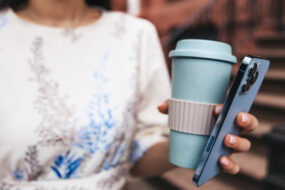Planning a getaway? Tips and rules for post-Covid travel
The pandemic has made travelling a little trickier, but it can still be safe and fun – you’ll just need to tick a few more boxes before you leave.
With international travel opening up to Australians, many of us are starting to dream of holidays and family reunions.
But there are some important things to know before you turn up at the international departure gates.
Travellers have always needed documentation such as passport, flight tickets and travel insurance.
But Covid-19 has added another layer of paperwork and preparation.
Australians heading overseas must secure an international vaccination certificate and will probably need a negative PCR test before leaving.
You’ll also need to check Covid rules and requirements in the country or countries you’re visiting.
And don’t forget to keep checking, as rules can change without warning.
- Spas and springs: Wellness experiences worth travelling overseas for
What is different for overseas travellers now?
The main changes are Covid vaccination rules, pre-travel test requirements, the need to abide by Covid-safe regulations in destination countries and observing Australian re-entry requirements.
Brisbane travel health specialist and author of Travelling Well, Dr Deb Mills, told House of Wellness radio that Covid has “just added one more thing to the mix” when it came to international travel.
“It’s actually safer than it’s ever been; it’s just a bit more organising,” Dr Mills says. “Planning is everything.”
- Take a break: Why micro-cations are the new way to travel
What you need to know about travel in the Covid-era
Dr Mills says knowing what your travel insurance covers is vital.
“The insurance policies have just skyrocketed in some places, and some policies cover illness with Covid but not disruption with Covid,” she says.
“And people with pre-existing illnesses are in a terrible place because if they get sick, their pre-existing illness may or may not be covered.”
She recommends packing good masks, hand sanitiser and extra rapid antigen tests (RATs).
With masks required on planes, it’s important to ensure yours is comfortable.
Dr Mills says the N95 mask is the best, followed by the KN95, surgical masks, and then cloth.
- Slow travel: 10 of Australia’s best hiking destinations
Why cruises are now a safer option
While cruising may have taken a bit of a reputation hit at the start of the pandemic, Dr Mills says cruises are safer than ever as they have improved ventilation, health services, social distancing and quarantine facilities.
These improvements will also help with other viruses, as it’s important to remember that other travel illnesses haven’t gone away.
“The health services (on cruises) are much better,” Dr Mills says.
“They’ve got better facilities.
“Once cruising starts again, we’re going to be safer than we ever have (been) before.”
How a travel advisor can assist your trip
David Goldman, joint managing director of travel advisory Goldman Group, says Australians are already heading to the likes of Europe, Fiji and Hawaii now international flights have resumed.
David says travel advisors can help to ensure all requirements are fulfilled and deal with any issues that arise overseas, such as having to isolate at your own cost or requiring Covid treatment.
They can also advise on how to secure pre-travel PCR test results quickly and efficiently.
“Our role has evolved to really making sure that we hold the hand of our clients from start to finish,” he says.
“It’s a new world of pandemic travel and people are doing it.
“The world is travelling.”
- Motion sickness: How to manage and prevent it
Tips for smoother travels during the pandemic
- Know what documentation is required by your destination country/countries.
- Research local rules such as vaccination and QR codes.
- Seek pre-travel medical advice.
- Organise travel insurance and read the fine print to ensure Covid illness is covered. Isolation costs may not be covered.
- Have Covid and other vaccines four to six weeks before you leave.
- Secure an international vaccination certificate.
- Ensure you have a pre-travel PCR test in the required timeframe.
- Pack good masks, hand gel and rapid antigen tests (RATs).
- Keep hard copies of all your documents in case apps don’t work.
- Turn your personal air vent on while on the plane.
- Eat and socialise outside where possible.
- Avoid crowded markets and public transport.
- Know Australia’s latest re-entry requirements.
For more information, the Australian government Smart Traveller website.
Written by Cheryl Critchley.






